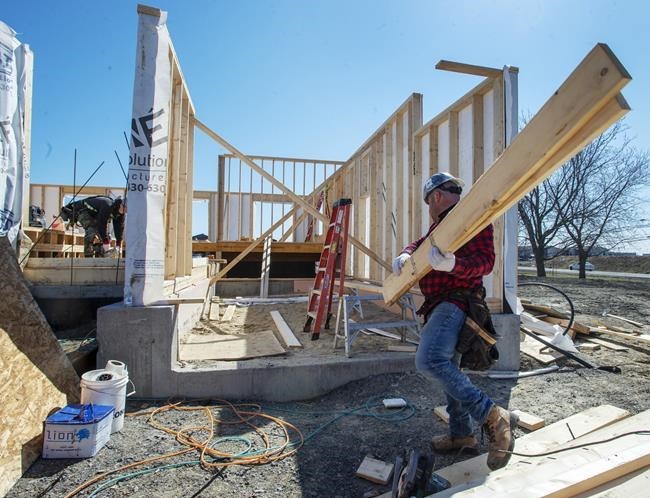OTTAWA — Since there is already a housing and homelessness crisis in many parts of the country, advocates say funds to fight the spread of COVID-19 could be used to keep people housed long after the pandemic has ended.
Cities all over Canada have been scrambling to find ways to keep the novel coronavirus from spreading like wildfire through overcrowded shelters.
Homeless people often have other health problems that put them at greater risk if they get sick with COVID-19, and without a home to isolate in it is harder for them to avoid infection or practice good handwashing hygiene, said Canada's chief public health officer Dr. Theresa Tam.
Without intervention, there will be outbreaks and avoidable deaths, she said.
The federal government has provided $157.5 million to help cities protect their vulnerable homeless populations.
While there's no easy solution to protect the homeless people from COVID-19, most major cities in Canada have used at least some of those funds to open up recreation centres, exhibition halls and hotel rooms to give them room to self-isolate and be treated, if necessary.
"It's way safer," said Maureen Fair, executive director of West Neighbourhood House, a social services agency in Toronto.
She told the House of Commons finance committee last week that opening hotel rooms for people to self-isolate has afforded them their own space, including their own bathrooms.
"The question is, are we going to evict them at the end of the COVID pandemic?" she said.
The answer has to be no, said David Reycraft, housing director for Dixon Hall in Toronto, one of the organizations helping settle people into hotels during COVID-19.
"There’s no way that post-COVID we can return people to emergency shelter systems," Reycraft said.
He said the goal in Toronto is to buy the hotels and other private properties, and turn them into permanent homes as other cities like New York have done in the past.
Not only is it better for the people living there, but it's more cost-effective than housing people temporarily, he said.
The City of Toronto acquired approximately 1,200 hotel spaces with the strategy of buying spaces wherever possible, and is looking into the purchase of 15 more sites, according to the local board of health.
Advocates are urging other cities to follow suit.
The Alliance to End Homelessness Ottawa urged the capital city to do the same, so the spaces can be used to keep people housed once the pandemic is over.
"Homelessness is still going to be an issue six months from now," said executive director Kaite Burkholder Harris.
She said it only makes sense, while funding is flowing, that cities would put money into permanent solutions instead of temporary ones.
It also eases some of the difficulties associated with putting homeless people in commercial spaces on a temporary basis.
The hotel industry in Victoria balked slightly when the city council there voted to have the British Columbia government take over some hotels to house the homeless.
The chairman of the Hotel Association of Greater Victoria said there were serious questions about how it would work, especially in spaces that are still operating.
Ottawa has also found it increasingly difficult to find hotel operators willing to take homeless people in.
There are questions about whether managed drug and alcohol use would be allowed for tenants with substance use issues in commercial spaces, Burkholder Harris said.
The spaces will also come in handy if COVID-19 resurfaces, especially since there is no vaccine, said Coun. Joe Cressy, chairman of the Toronto Board of Health.
It wouldn't make sense to rapidly house people and evict them into crowded shelters again once the crisis ebbs, only to have to find new spaces if a second wave strikes, he said.
Cressy said COVID-19 is preying on poverty and cities have an obligation to find long-term solutions.
"There is a public health requirement for all three levels of government to address housing inequity right now," he said.
Cressy said federal and provincial funds have not been nearly enough to cover the major cost of buying up hotels and other private buildings, but Toronto is keeping the receipts and he urged other municipalities to do the same.
"We can't afford not to solve chronic homelessness. COVID-19 has exposed that," he said.
This report by The Canadian Press was first published April 21, 2020.
Laura Osman, The Canadian Press



